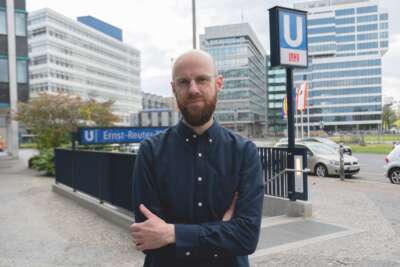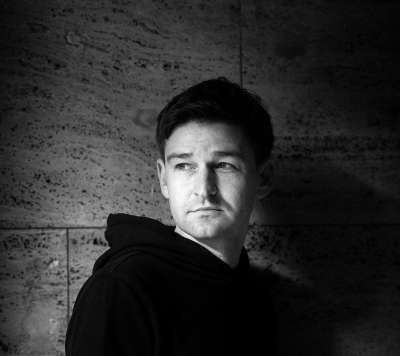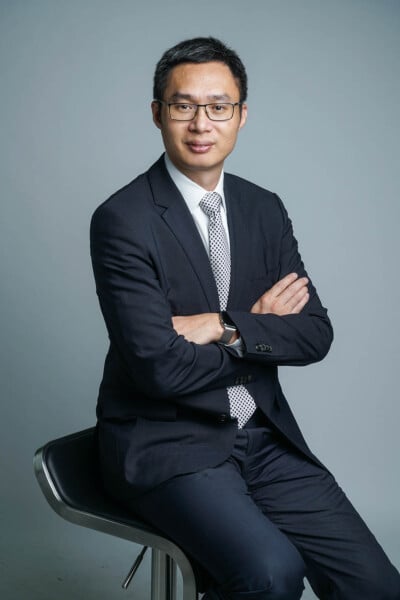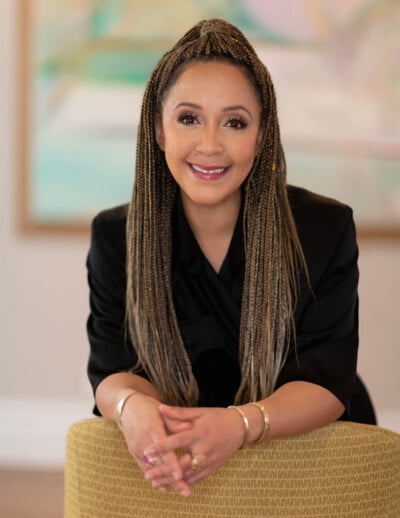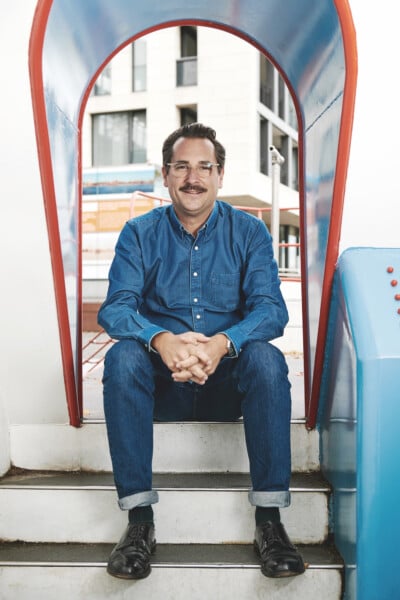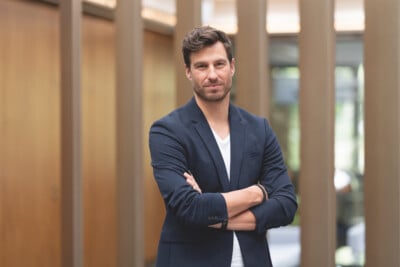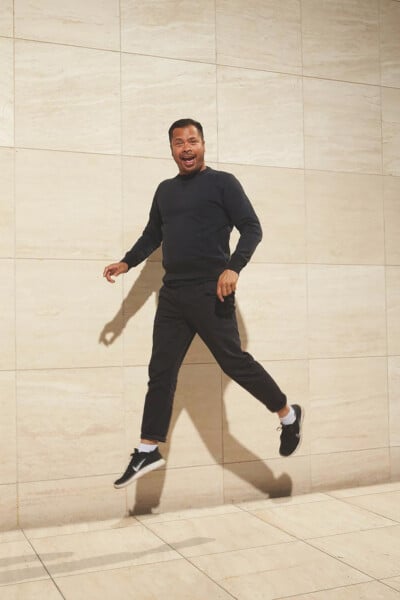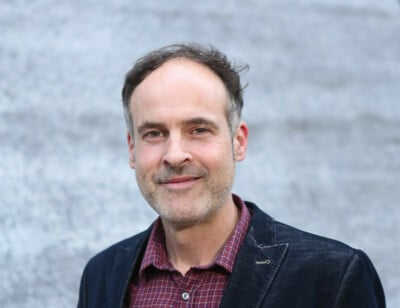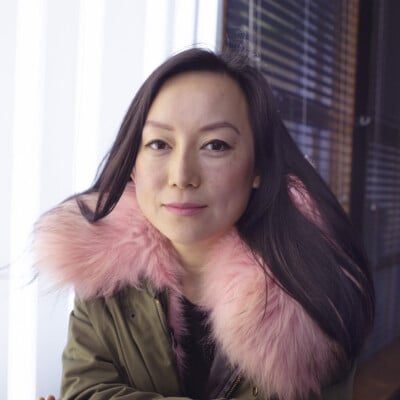The Art of Beauty Marketing

- Nicola Kilner, CEO at DECIEM
- Photos: DECIEM

The UK-born Nicola Kilner was poached in her early 20s by beauty maverick Brandon Truaxe to help found a game-changing skincare project brand. She remains co-CEO of Toronto-based DECIEM, the self-styled “Abnormal Beauty Company”, whose bold and transparent product concepts NIOD and The Ordinary have won serious attention worldwide. Since 2017 Estée Lauder has held a third of the company’s shares.
During lockdown we spoke to Nicola from her home in Nottingham, UK. She gave us her unique insight into the beauty sector, founded on experience stretching from beauty-buying for massive UK retailer Boots to co-developing a business worth hundreds of millions of dollars.
We hope you and your loved ones are managing the lockdown okay.
I’m good, I have a one-year-old baby daughter, which is why I’m a little late … But actually I’m enjoying if anything having more time at home. I feel like I have the best work-life balance I’ve had for many years. Before this, I’d probably spend about half the time travelling. Even with my daughter, we’d still be in Toronto about once a month for ten days. And then various other trips.
How is the pandemic affecting your work?
From a business perspective we’ve definitely seen our demand increase quite significantly since the pandemic started. It’s a mixture of that we were already quite strong online, and that’s stepped up a gear now so much bricks and mortar has closed. I also think our price point, especially for The Ordinary, which is more accessible, at these times when people are feeling a little anxious about the future state of the economy and their personal finances … It’s probably a good time to be a more accessibly priced brand. And I think people are looking for that authenticity … When you see the whole world fall apart, there’s something not very wholesome about something in extravagant packaging with a lot of unnecessary waste. So from a brand perspective we’re one of the fortunate ones.
But ultimately we’re still a team of 1,000 human beings, and it’s taken a lot out on the team, depending on where they’re working. For our office teams, everyone’s working from home. For some people, like myself,I’m actually loving it. Without the burden of travel, it’s amazing how many extra hours there are. But a lot of our team are maybe living in flatshares, and are not in as comfortable situations, so are finding it more tough.
For retail, we have 35 DECIEM stores around the world that we actually shut down just before the restrictions said we had to. We have over 300 people working in that part of the business. For our revenue it’s not so important, it’s more for brand positioning, but we’re really conscious of how, knowing it’s a situation that will impact our bricks and mortar for a year or longer, we can find a solution to protect every single one of the jobs. So we introduced DECIEM at Home, software on our website, so consumers can have a virtual consultation and talk to one of our 300 people who are incredibly knowledgeable experts on our brand and products. So it felt like a good resource to connect people in their homes with our team in their homes. We can continue that for a lot longer.
Then it was really difficult to find out what to do with our warehouses and manufacturing. They were all allowed to remain open by their governments in each country. But we were conscious again of having so many people who have different circumstances. Some might be living with someone vulnerable, or might be classed as vulnerable, while others are in a low-risk category. So we gave everyone a choice between staying at home with no requirement to work and receiving 80% of their pay, or for those who chose to come into work, they would get an attendance premium and receive 150% of their salary. And I think it made everyone feel in a lot more control of the situation, since it was a purely voluntary decision to come in.
You said various countries – where do you operate?
All our manufacturing is done in Toronto, but then we have warehousing and logistics – our own facilities – in the UK, New Jersey, Melbourne,Seoul and Hong Kong.
How is sustainability being adopted in the beauty industry?
People are starting to do things, and I include ourselves – we do somethings, but I don’t think we’re anywhere near where we should be and it’s definitely one of our highest priorities. There’s something about the world of beauty, if you’re using a product to make yourself beautiful, can you really feel that way if it’s hurting someone else? Whether it’s someone in a lower income country who’s producing it in worse conditions, or if it’s hurting the planet through ingredients or sourcing. So I think it’s something where the beauty industry should be leading. I do think companies will take more of a stance, because I also think consumers will demand it. We’re hiring for director of sustainability, we’ve been looking for about four months, but haven’t found the right candidate yet. It’s an area where I’d like to think DECIEM could become more of a leader in the coming year.
Are you looking at AR or VR for your sales experience?
We’re not looking at augmented reality at the moment. What we’re looking at with our own stores, because it could well be a year before we reopen, is to operate as virtual stores. That could be just having a socially distanced amount of staff within the store. So wherever you are, you can come online and see inside the store, and get a feel for the branding,
the products on hand.

How could DECIEM improve in terms of marketing or distribution?
By having more stock. That’s been our issue for the last three years, and it’s more of an issue than ever. We’ve always tried to do everything in-house, including our manufacturing, which has had its benefits. Especially in the start-up stage of a consumer goods business, almost the biggest risk you have is having too much stock. That’s what happens when you use a third-party manufacturer because you have to commit to their minimum runs. You might end up with a line that consumers don’t want, and that forces you to push the wrong product. So it was a real saviour of the business in the early days, because we could test so many different skews, by making small runs, because it was all in our own factory. And that allowed us to be very much consumer-driven rather than pushing our own
agenda too much. But it’s become one of our downfalls, because our standards are so high. The odd time we’ve tried to use third-party manufacturers to fill some of the gap, it’s just small things, like the label is not centred in the right way … It made it harder to feel any trust. We’ve always done everything in-house. That includes when we set up in Germany and other markets, one option is to use a distributor, where you sell the products to them and they run everything for you. But because we wanted to retain control of the brand, we’ve actually had to go in and set up our own teams, build warehouses … So it’s probably a bit slower but I believe it’s the right thing to do to
make sure the brand is always represented in the right way.
What forms of marketing are most successful these days? Has that changed?
We’re somewhat an anti-marketing company in that we don’t do any traditional marketing. That’s partly because skincare is one of the harder industries where people are instantly sceptical. People instantly assume a skincare product is a scam. Whereas with colour cosmetics, for example, you can see a picture in a glossy magazine and see the shade, and you have the trust that the lipstick will look like the shade you’re seeing, and you’re buying more into that brand and lifestyle thing. With skincare it takes time to build up trust, which you can only do through organic word of mouth. By having communities, which is hard to do when you want them to be independent, but at least you can give them the resources. We’ve been fortunate to have support from a lot of in-fluential press journalists, especially in Britain. Then, on Instagram, it’s the power of the micro-influencer that’s so important today. It’s interesting, Kim Kardashian spoke about one of our products, on her app or something, but we didn’t see much of a sales uplift. Whereas then you get the power of all the micro-influencers, who are actually the true influencers now because people trust them en masse.
What trends should people look out for in beauty going forward?
There’s going to be a trend for simplicity again, especially after the pandemic, whenever we get through this, of course mixed with a global recession … People will want to go back to having more basics, and brands that feel authentic. This probably ties a little into the previous trend of transparency, because that’s now been around for a couple of years, but I think that will continue, because when brands are transparent and simple, they get back to their basics and they are their true selves. That’s what’s going to resonate most with consumers now.


